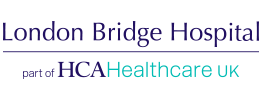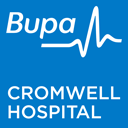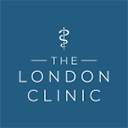MS Service
Multiple sclerosis (MS) has a fearsome reputation and even if it is just a possibility this can be hugely distressing for the individual and their families. However MS is a variable condition; some people can go through their whole life and never know they had it, whilst others can be disabled within months. There are two reasons for optimism for newly diagnosed people with MS: firstly we tend to diagnose more and more mild cases probably because MRI scanning is so sensitive at detecting the disease. Secondly there are many new therapies being developed, many of which Dr Turner is involved in, which have a significant impact on the disease. One discovery from therapeutic studies is that the earlier treatment is commenced the better the impact of the therapy, hence the importance of an early diagnosis and the great benefit of MRI and the new McDonald diagnostic criteria.
At London Bridge and Cromwell Hospitals prompt and early diagnosis is possible with both MRI and lumbar puncture, with some tests not available in other UK hospitals, such as cerebrospinal spinal fluid neurofilaments (NfL) which help predict prognosis. There is full access to disease modifying therapies, which can be administered based on clinical need rather than NHS funding restrictions, allowing personalised therapies directed to the individual. This includes HSCT, ‘stem cell’ therapy which is appropriate in a selected group of patients and may have long term success in controlling aggressive cases of MS. For details of the criteria for HSCT please see below.
Whilst disease modifying therapies are important currently they are only relevant to around 20% of MS sufferers and therefore for the majority of MS sufferers the emphasis is on symptomatic treatment. This is why specialist knowledge is required for this chronic condition as there are many aspects particular to MS. These include the fatigue, visual disturbance, bladder and bowel issues, balance and spasticity. Dr Turner has many years of experience in dealing with these symptoms and the best way to address them. At London Bridge and Cromwell Hospitals there are world class physiotherapy and other therapy facilities for addressing the needs of people with MS.
Fortunately there is a vast amount of research into multiple sclerosis. Whilst this means that the scientific community is working away at the complex and elusive condition there is also an overwhelming amount of opinion, information and even supposed ‘cures’. For patients it is helpful to be guided as to what is reliable information and what is misinformation; as someone actively involved in research, Dr Turner can guide people through this potential minefield.
Patient Eligibility Criteria Adopted by the London MS-AHSCT Collaborative Group
The eligibility criteria are broadly based on the consensus protocol agreed for a Phase 3 trial of AHSCT in MS (Saccardi R., et al. and Muraro P.A., (2012) A prospective, randomized, controlled trial of autologous haematopoietic stem cell transplantation for aggressive multiple sclerosis: a position paper. Mult Scler. 18, 825-834). Justification for the criteria is further provided by evidence from AHSCT trials and observational studies.
Referral criteria:
- Diagnosis of MS made by a neurologist
- Able to walk, needing at most bilateral assistance to walk 20mt without resting
- In relapsing MS (RMS), failed one licensed disease modifying drug of high efficacy (currently including alemtuzumab, natalizumab, cladribine and ocrelizumab) because of demonstrated lack of efficacy
- New MRI activity within last 12 months
Inclusion criteria:
- Age 18 to 65 years
- Disease duration ≤15 years from diagnosis of MS
- Diagnosis of MS according to McDonald’s criteria
- For PPMS, CSF OCB+
- For RMS, failed at least one licensed disease modifying drug of high efficacy (‘Category 2’ as defined by Scolding N, Barnes D, Cader S, et al. Pract Neurol 2015;15:273–279; currently including alemtuzumab and natalizumab, also cladribine, ocrelizumab) because of demonstrated lack of efficacy (as evident from relapse, MRI activity as defined below at Point 7, or EDSS increase) after being on DMT for at least 6 months
- EDSS score 0-6.5
- Inflammatory active MS as defined by ≥1 Gd+ (>3mm) lesion(off steroids for one month) or ≥2 new T2 lesions in MRI within last 12 months
- Approved by the MDT
Exclusion criteria:
- Eligible for an ethically approved clinical trial where AHSCT is offered as one of the treatment arms
- Unable to adequately understand risk and benefits of AHSCT and give written informed consent
- Prior treatment with total lymphoid irradiation and autologous or allogeneic hematopoietic stem cell transplantation
- Contraindication to MRI including but not limited to metal implants or fragments, history of claustrophobia or the inability of the subject to lie still on their back
- Poorly controlled depression or recent suicidal attempt
- Presence of any active or chronic infection
- Unable to walk 20mt with or without support, or wheelchair dependent
- Any significant organ dysfunction or co-morbidity that the Investigators consider would put the subject at unacceptable risk
People say when you have MS “the most realistic plan is a miracle”. Being in my early 40s and having just moved to a demanding new job in the City from Eastern Europe the diagnosis struck like lightening. It was “miracle” enough to have my trusted GP refer me to a medical school colleague, a young neurologist – Ben Turner. He put the diagnosis gently enough so I could handle it emotionally; quickly enough so that I could make use of the best medication to force a remission. He made himself and his staff available for whenever I needed their medical or emotional support (this includes questions about “miracle cures” that I constantly browse for on the internet). He has been my consultant for twelve years now, and as desperate as I am since MS contradicts the idea of life that I have had for 40 years, I would not leave him for a promising miracle. I trust him. VG





